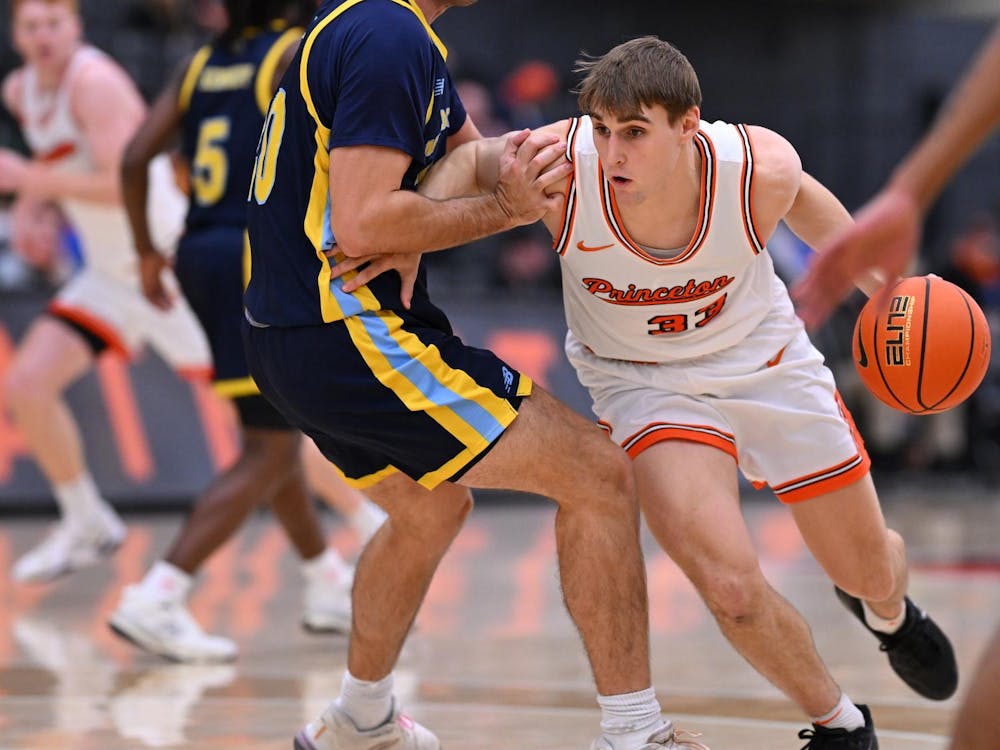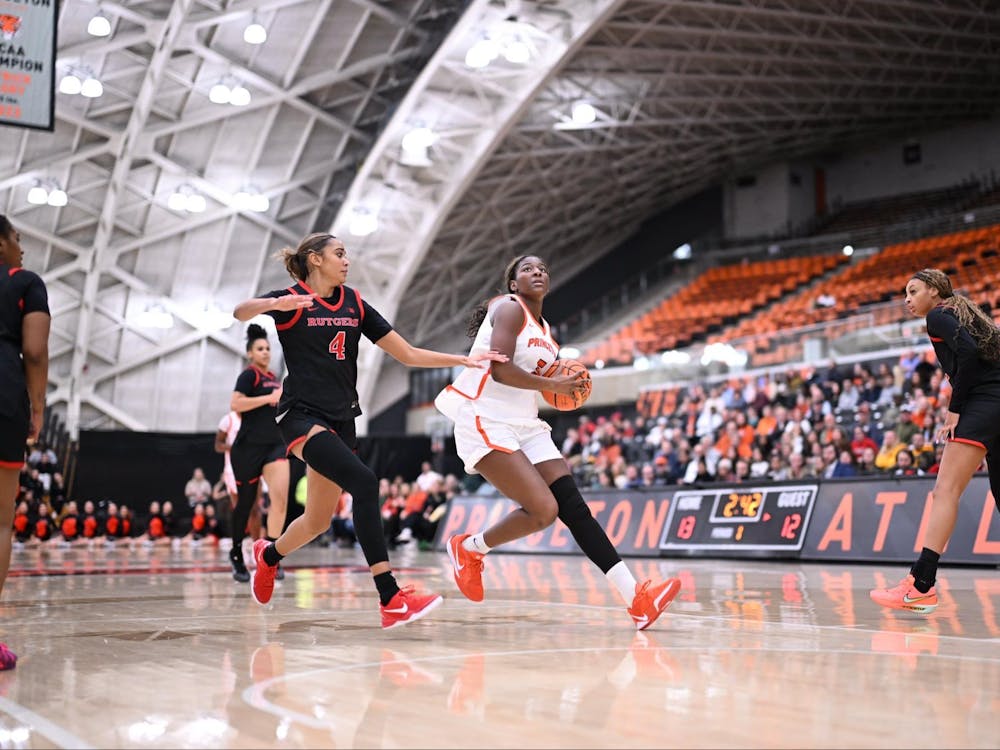He is a plainspoken Nebraskan. He is 40 years old. He holds a Ph.D. in exercise physiology. He just came down from Hanover, N.H., and he brought the weather with him. So, he apologized.
He is not the choice many had expected, but as of Friday morning, Roger Hughes is the new head coach of the football team.
There were more high-profile names reportedly in the running to replace Steve Tosches, and Hughes was not among them. He is not an Ivy League graduate, nor an NFL assistant.
And the Dartmouth team whose offense Hughes coordinated didn't have an exceptional year, after all. This season the Big Green finished 2-8, as Hughes' offense averaged 15.8 points per game – the lowest of any Ivy team.
But more than this year's snapshot results, it was Hughes' ability to make the most of the limited talent his team did have – through a creative offense – that garnered attention. And even more than his ability to design plays, it was Hughes' straightforward manner and ability to relate to the players that attracted both the alumni and University selection committees and Director of Athletics Gary Walters '67.
Princeton football legend Dick Kazmaier '52 – who was asked by Walters to be on the alumni committee but could not serve – understands Hughes' choice above the rumored others.
"There are a lot of things that you're looking for [in a coach]," he says. "I don't see anything to gain from an NFL credential. I think one of the keys to an Ivy League football team is how you bring the team together."

A native of Crawford, Nebraska (Pop. 1,115), Hughes had scarcely heard of the Ivy League growing up, let alone thought of coaching football within it. It was only through an ESPN Ivy League Game of the Week – Dartmouth, of course, against Cornell – and the advice of a friend that Hughes even thought about heading to the league.
"As I got more interested in it, I got to figure out that it wasn't a bunch of pencil-necks with glasses," Hughes says. "It was pretty good football. I was pleasantly surprised with the quality of play.
"Once I got into it – found out what it was about – I really enjoy the mission. I enjoy the purpose of the league."
Hughes came to Dartmouth after several coaching stints through the Midwest. After graduating from Doane College in 1982, lettering in football as a tight end, he quickly turned to become an assistant coach with his alma mater.

From Doane, Hughes moved to the University of Nebraska to study for his Masters of Physical Education and serve as a graduate assistant for the football team, under legendary coach Tom Osborne.
While Hughes coached the team's varsity receivers and secondary, the Cornhuskers finished in the Top 10 each of his three years. But more than how to earn bids to bowl games, Hughes learned a lot from Tom Osborne, both as a coach and as a mentor.
"[Osborne is] one of the main reasons I have the Ph.D.," Hughes says. "The way [Osborne] carried himself, he's a class act. I wanted to be a class act. I wanted to associate myself with excellence."
After passing through the coaching ranks of Doane (again), Oklahoma's Cameron University and the University of Wisconsin-Whitewater, Hughes sought to associate himself with the excellence of the Ivy League when head coach John Lyons brought him on board at Dartmouth in 1992.
In his opening season as both offensive coordinator and quarterbacks coach, Hughes found one of the most excellent Ivy league players in the team's quarterback – Jay Fiedler, now of the NFL's Jacksonville Jaguars. Under Hughes' tutelage, Fiedler became Dartmouth's career passing record-holder. He currently backs up Mark Brunell, as the Jaguars compete in the NFL Playoffs.
While at Dartmouth, Hughes developed a coaching philosophy that he intends to bring – or adapt – to Princeton.
"Certainly offensively, we're going to have a similar vision," he says. "I would like to do some of the similar things that we've been doing at Dartmouth because I think they're very hard to defend. It would be hard for me to envision me not having a creative input in the offense.
"I believe in a lot of formations and motions. I believe in creating mismatches. I believe in creating leverage problems for the defense where you must make adjustments."
Beyond the Xs and Os, Hughes wants to change the attitude surrounding Princeton football. He wants to "create a family culture on the team." He says he wants to have fun.
"Everyone thinks that this could be the one little spark that gets everything rerouted," sophomore quarterback Tommy Crenshaw says.
The open attitude and friendly demeanor of a "player's coach," as Crenshaw called him, does not take away from his determined call to turn the program around. He has already asked his team to raise the bar of commitment in the off-season to build for championship seasons in the future.
"I talk about excellence, not perfection," Hughes says. " I sense a hunger for excellence. I'm really excited about the attitude of the team and where that can go."
After learning from the excellent Osborne and coaching the excellent Fiedler, Hughes said he was attracted to Princeton's own particular excellence. And Princeton was attracted to his own.







